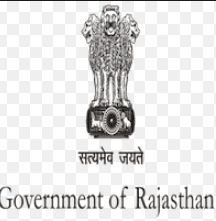Rajasthan Increases Minimum Wages and Expands Health Insurance Coverage
Rajasthan Chief Minister Ashok Gehlot has approved an increase in minimum wages for laborers by Rs 26 per day, effective from January 1, 2023, just months before state elections. The increase will benefit unskilled, semi-skilled, skilled, and highly skilled workers.
Additionally, the chief minister has expanded the scope of the Mukhyamantri Chiranjeevi Swasthya Bima Yojana to include insured employees and their families under the Employees’ State Insurance Scheme (ESI), providing free health insurance coverage of up to Rs 25 lakh. Other approved measures include financial approval for the development of the e-registration project of the Registration and Stamp Department, upgrading six government upper primary schools to higher secondary schools, and creating 78 new posts for these schools.
What impact will the increase in minimum wages have on the labor force and the economy of Rajasthan?
The increase in minimum wages will directly benefit the labor force by increasing their income, which could lead to improved living standards and increased purchasing power. This could, in turn, stimulate demand for goods and services, thereby potentially boosting the local economy. However, it may also increase labor costs for businesses, which could lead to higher prices for goods and services or reduced profits for businesses.
How might the expansion of the Mukhyamantri Chiranjeevi Swasthya Bima Yojana affect the healthcare system and the well-being of the people in Rajasthan?
The expansion of the Mukhyamantri Chiranjeevi Swasthya Bima Yojana will increase the number of people with access to free health insurance coverage, which could lead to increased utilization of healthcare services and improved health outcomes for the population. It may also reduce out-of-pocket healthcare expenses for insured employees and their families, thereby improving their financial well-being. However, it could also increase the demand for healthcare services, potentially straining the healthcare system.
What are the potential benefits and drawbacks of the approved e-registration project for the Registration and Stamp Department?
The potential benefits of the e-registration project include increased efficiency in the property registration process, reduced waiting times, and improved convenience for the public. It may also reduce opportunities for corruption and increase transparency in the registration process. However, the project will require a significant investment in technology and training, and there may be challenges related to technology adoption, especially among the older population or those with limited digital literacy.
How might the decision to upgrade six government upper primary schools to higher secondary schools impact the education system and the local communities in Rajasthan?
Upgrading six government upper primary schools to higher secondary schools will increase access to higher secondary education in the local communities, which could lead to improved educational outcomes and increased opportunities for higher education and employment for students. It may also reduce the need for students to travel long distances to attend higher secondary schools, thereby reducing transportation costs and time. However, it will also require additional resources, including teachers, infrastructure, and teaching materials, to support the upgraded schools.
Month: Current Affairs - August, 2023
Category: India Nation & States Current Affairs


